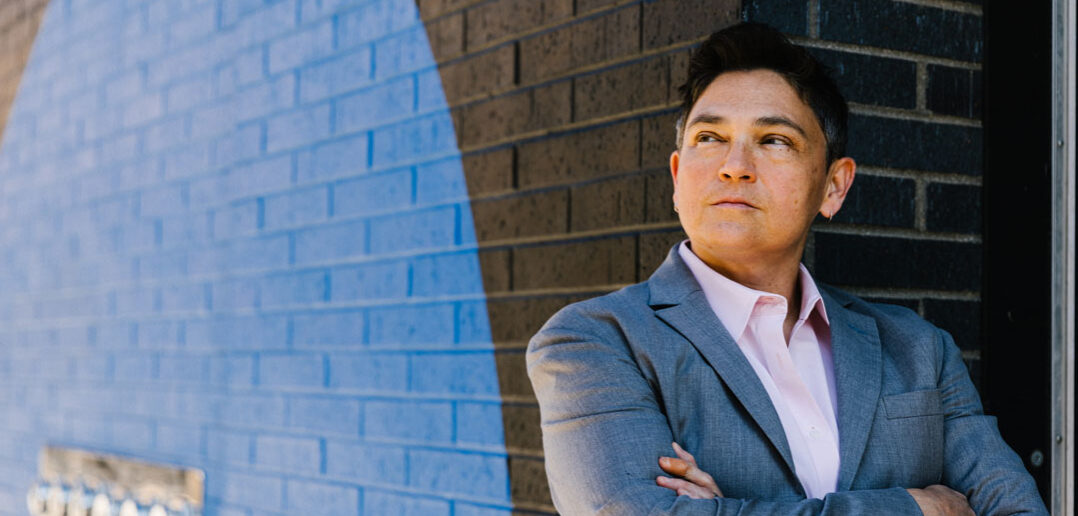An alum makes it easier to do the right thing.
In 2012, when Tara Lagu RES’05, MD, MPH, tried to make an appointment for a patient she was discharging from the hospital, it turned out to be no simple task.
“I could not find a doctor who would make a follow-up appointment for my patient, because she used a wheelchair,” Lagu says. “Despite the long-standing Americans with Disabilities Act [of 1990], every practice I called told me the only way they would see the patient is if she came in by ambulance and she was transferred to an exam table by EMS. That would have cost her family more than $1,000 out of pocket—money the patient did not have.”
The experience launched a 10-year academic focus for Lagu, who is the director of the Institute for Public Health and Medicine at Northwestern’s Feinberg School of Medicine. First, she called physician practices across the country to understand why people who use wheelchairs were having trouble getting appointments. Her main query: Would they see a patient in a wheelchair? Her study revealed that “22 percent of doctors we called would not make an appointment for a patient who used a wheelchair,” Lagu says. “Of the rest, about half planned to transfer the patient to an exam table in an unsafe manner.”
The eye-opening finding prompted Lagu to take a longer look at the barriers people with disabilities encounter when trying to access health care facilities. She and colleagues then considered many potential causes of the access problems, and recently she worked on a study examining how physician attitudes were affecting that access. A paper published in Health Affairs in 2022 identified a host of physical, communication, and structural barriers to care for people with disabilities—and reported that some physicians, overwhelmed by the need to accommodate people with disabilities, were discharging such patients from their practices. In fact, doctors in focus groups freely admitted to denying patients necessary care.
“No one becomes a physician to discriminate against vulnerable patients. Rather, the system is structured in a way that makes doing the right thing—in this case, caring for people with disability—the hardest thing to do,” Lagu says. “It’s about gaps in medical education, a lack of equipment, a lack of staff training, an ableist structure that lacks interpreters, aides, communication devices, proper fields in health care records, and many other factors.”
Lagu, who earned her MD and MPH at Yale, first learned to address health care inequity during her general internal medicine/ primary care residency at Brown. “The program directors encouraged us to be focused on the whole patient and the patient within a community—to believe that we, as physicians-in-training, could improve the health of the population of Rhode Island and beyond,” Lagu says. “It was a big part of what shaped me and it was where I got my start.”
Now junior investigators are learning from Lagu. Maggie Salinger, MD, MPP, MPH, is an assistant professor of medicine at Brown focused on improving health care quality and access for people with disabilities. “I learned about Tara through reading some of her foundational work in the disability health equity space,” Salinger says. “I was inspired by both the substance and symbolism of her work. At the time, I was in my research fellowship at Harvard, so it was important to see a role model for the career I wanted to pursue. Tara graciously set up a meeting to discuss mutual interests—and since then, she has been a valued mentor. We are in the process of submitting a research paper on disability content in medical education that Tara invited me to join.”
Lagu is grateful for colleagues following in her footsteps. “Systems and structures are stacked against people with disabilities and others with health-related social needs,” she says. “The hard part is finding solutions, of course, but I think that the values and dedication to this work I started learning at Brown will be a constant reminder that solutions are out there.”




